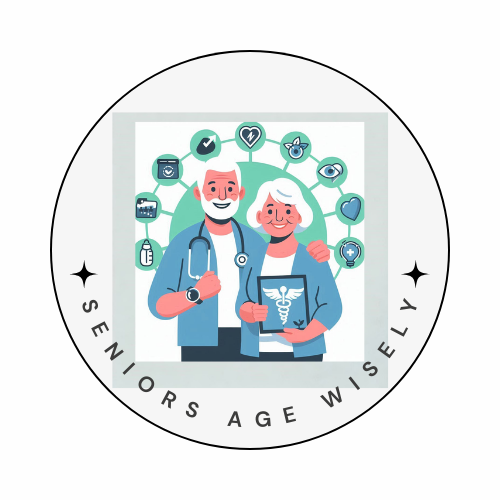
Aging isn’t just about getting a few more lines on the face or having the occasional “where did I put my glasses?” moment. As we age, our bodies and minds undergo a whole host of changes that can sneak up on us. It’s like being on a life-long journey where the road just keeps changing—sometimes it’s smooth, other times there are bumps. But knowing what to expect can make the ride a whole lot easier.
So, what’s happening on the inside? Well, for starters, our metabolism slows down, which means we might find ourselves being at odds with foods we once loved, as they seem to find sneaky ways to hang around our middles. Old age muscle mass naturally decreases too, unless we keep moving and stay active to look after our senior body mass index. Then there are those pesky joint pains that weren’t there before. Not to mention, our immune system might take a bit longer to fight off a cold, and our cognitive processes might need a little more time to rev up.
Facing these changes doesn’t have to be daunting. It’s about adapting and understanding that we might need to shift how we approach our health and wellness. It’s like tuning up a car to keep it running efficiently. Regular check-ups, being mindful of our diet, and maybe rethinking that exercise routine are all a part of this process. Trust me, these small steps can make a massive difference!
The key is to approach these changes with an open mind and a knack for curiosity. Whether we’re talking nutrition tweaks or exploring new senior muscle building exercises, each adjustment is about enhancing quality of life. And while the journey of aging is unique for everyone, having a few tips and tricks up your sleeve can be the secret sauce to thriving in this new chapter.
Remember, aging is just another phase of life to embrace with gratitude, even if it means managing a few more doctors’ appointments than you’d like. But, hey, those appointments are there to ensure we’re keeping this body of ours in top shape. It’s all about being proactive, so if you’re ever unsure, hit up your healthcare provider—I’ve never met one who’s not ready to share advice tailored just for you.
Joint Pain and Mobility: Finding Comfort
Joint pain, especially in the knees and hips, seems like nature’s way of reminding us we’re getting older. It’s that occasional creak and crackle you hear when you stand up after sitting too long. So, what gives? Often, it’s inflammation playing tricks on us, making conditions like arthritis more prominent as we age.
Inflammation is like that uninvited guest who shows up and overstays their welcome, leading to stiffness and discomfort. Fortunately, Omega-3 supplements might just be the helping hand we need. Packed with anti-inflammatory properties, these fatty acids—usually found in fish oil—work wonders on easing the tension in our joints. Plus, they throw in some added benefits for your heart and brain health too! So that seems to give a clear answer to the question: should seniors take Omega 3.
But supplements aren’t the only story. Staying active is crucial. It’s tempting to take a back seat when joints ache, but low-impact exercises like swimming or yoga can keep those joints moving smoothly without adding stress. Remember, the key is maintaining flexibility and strength, hence, chatting with a physical therapist for personalized routines can really make a difference.

Beyond exercise, simple lifestyle tweaks can also help. Warm baths, for example, are a great way to soothe achy joints. And don’t forget about diet—foods that are rich in antioxidants and anti-inflammatory properties, like berries, leafy greens, and nuts, are your joint’s best friends.
Managing joint pain is about keeping balance, quite literally. So next time the joints start to talk back, pause and consider if a certain stretch or maybe even some Omega-3 could help. Ensuring comfort in these everyday moments can make all the difference.
Brain Health: Navigating Cognitive Decline
Aging brings some challenges to brain health, and mental decline in seniors can feel like a puzzle we hadn’t expected to piece together. Misplacing keys or taking longer to find the right word can be a bit unsettling. It’s important to know that this journey doesn’t have to be faced alone, and there are strategies to support our gray matter as we age.
One potential ally in maintaining cognitive function comes from fish oils loaded with Omega-3s. These fatty acids aren’t just good for your heart; they’re brain boosters too, helping nurture neurons and keep those synapses firing. Something else to consider are the benefits of Ginkgo Biloba, a herbal supplement that has shown potential in supporting memory and circulation.
While supplements can play a helpful role, our brain thrives on stimulation. Keeping the mind engaged with puzzles, reading, or even learning a new skill can do wonders. It’s about keeping the mental muscles flexing, just like we focus on the physical ones. And let’s not forget socializing—chatting with friends, volunteering, or joining a club can keep your brain buzzing in the best way.

Staying curious and open to learning at any age is a great way to keep cognitive decline at bay. Regular check-ups with a healthcare professional can also offer personal insights into strengthening the brain as well as how to build brain health. Taking steps to nourish the mind is not just about supplements; it’s about embracing a lifestyle that celebrates active aging.
Boosting Immune Function and Bone Health
Our immune systems are like superheroes fighting off those pesky villains—bugs, viruses, and more. But as we age, our superheroes might need a bit of a power-up to keep defending us from these everyday threats. This is where understanding how to boost immune function and bone health comes in handy.
Vitamin D and Calcium are a bit like our immune system’s sidekicks, essential for strong bones and shielding us from conditions like osteoporosis. Think of them as dynamic duos—Vitamin D helps absorb Calcium more efficiently, giving your bones the stamina to stay strong. Regular sunshine grabs and a diet including fortified foods for elderly can help, but sometimes a supplement can provide the extra boost needed.
And then there’s gut health, which is critical because a big chunk of your immune system lives there. Probiotics, those friendly bacteria found in yogurt and supplements, can help keep your gut in tip-top shape. A healthy gut microbiome means better digestion, fewer tummy troubles, and a stronger immune defense.
A nutrient-rich diet is a solid line of defense. Fill up on fruits, veggies, lean proteins, and whole grains, keeping your body fueled with the foods that support immunity and bone health. It’s all about balance—keeping inflammation in check, knowing what is healthy for the gut, and maintaining bones that hold us steady.
Of course, each person’s needs are unique, so consulting with a healthcare provider before adding new supplements is always a wise idea. With a little guidance and the right approach, keeping up immunity and bone health can feel less like a chore and more like a natural part of living your best life.
Affiliate Disclosure
Here’s a little transparency: Our website contains affiliate links. This means if you click and make a purchase, we may receive a small commission. Don’t worry, there’s no extra cost to you. It’s a simple way you can support our mission to bring you quality affiliate marketing content.
